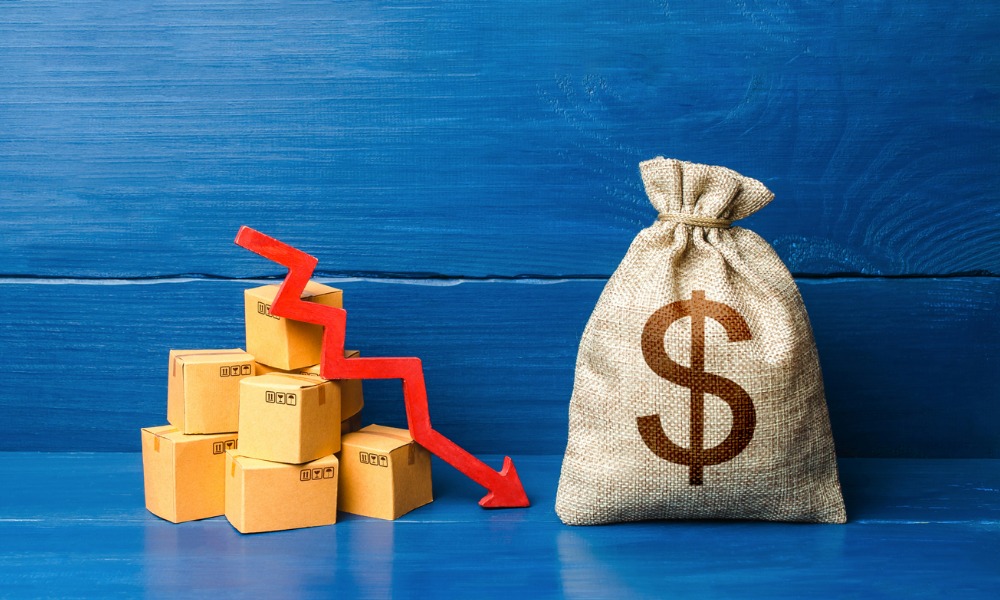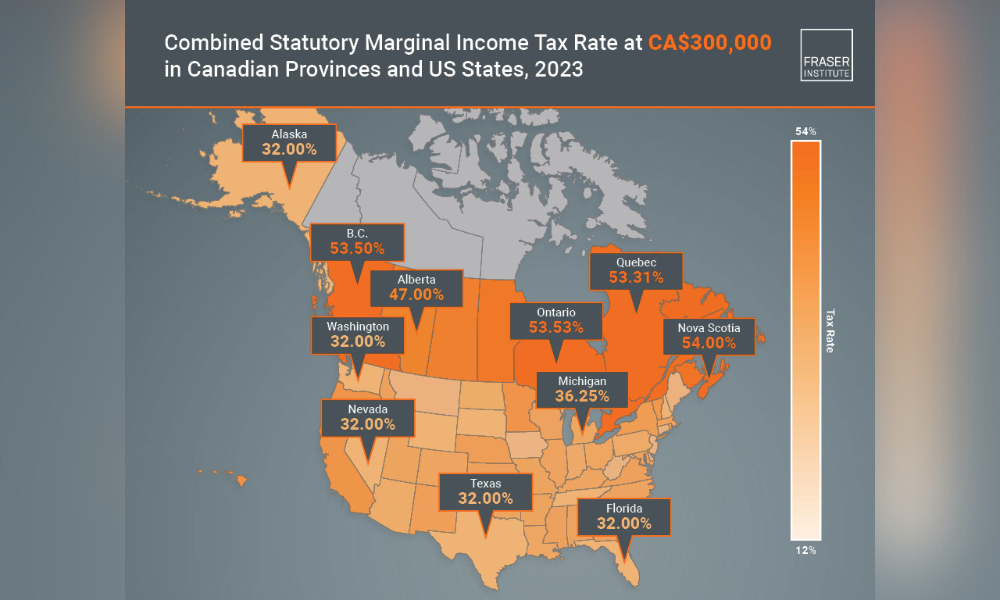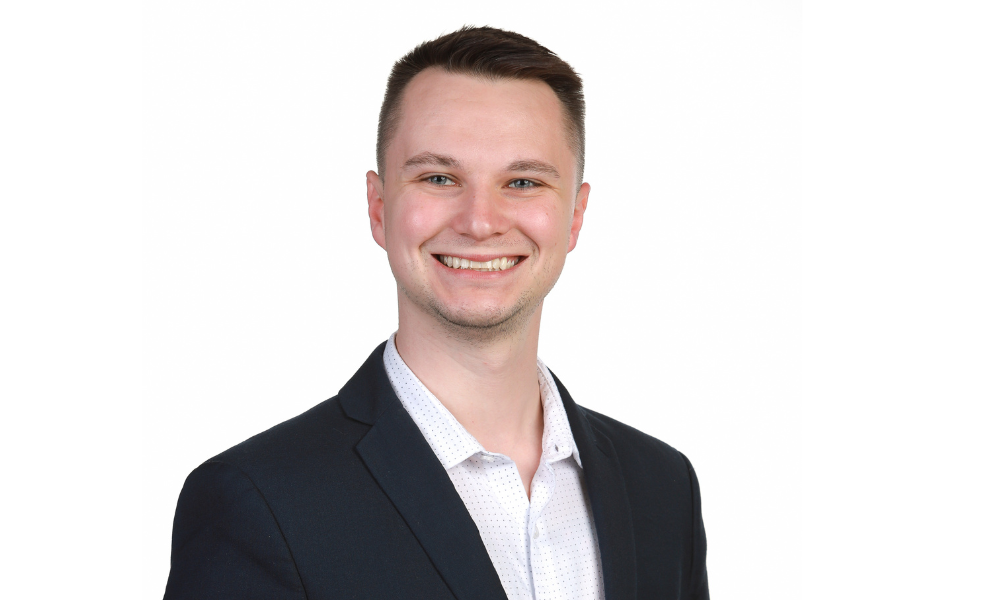Fraser Institute study reveals widened gap between north and south of the border

Earning a six-figure income in Canada is more costly than anywhere in the United States as federal and provincial income rates widen the gap between taxation north and south of the border.
According to a new analysis among all 61 provinces and states in Canada and the U.S. by the Fraser Institute, published today (April 9), Canadians earning $150,000 or more will pay a higher rate of income tax than they would in the U.S.
Combined tax rates range from 38% in Alberta to almost 47.5% in Quebec at the $150K level. Once you get to $300K, the rates range from 47% in Alberta to 54% in Nova Scotia. By comparison, an income of $150K in Washington, Nevada, Texas, or Florida would be taxed at just 24%, while $300K would be taxed at 32% in those four states.
“Our high-income tax rates can deter professionals, entrepreneurs and businessowners from working and investing in Canada, which is bad for the Canadian economy and therefore Canadians,” said Jake Fuss, director of fiscal studies at the Fraser Institute and co-author of Canada’s Rising Personal Tax Rates and Falling Tax Competitiveness, 2024.
Looking at more modest income levels, at $50,000 of annual income, the top 10 highest combined (federal plus provincial/state) personal income tax rates are in nine Canadian provinces—with all provinces in the top 15—ranging from a high of 31.5% in Quebec to 22.7% in British Columbia.
Newfoundland and Labrador saw the largest rise in combined income taxes, a 10.3 percentage points hike, to take it from one of the lowest taxed provinces in Canada in 2009, to the highest in 2023.
The institute’s research in 2023 found that most Canadians believe the combined rate of federal and provincial income tax is too high and should be limited.
“If policymakers want to attract and retain skilled workers and job-creators, and encourage entrepreneurs, we must lower personal income tax rates and avoid higher rates at all costs,” said Grady Munro, co-author and policy analyst at the Fraser Institute.

Does taxing the rich work?
In theory, taxing the richest in society brings in high levels of additional revenue to be spent on public services, but a recent study highlights the risk.
A study from academics at three American universities looked at state-level income taxes in the U.S. from 1900 to 2010 and revealed that over a century, wealthier Americans tended to move out of state when income taxes were too high, but remained when income tax increases were minimal.
“Personal income tax means a tax upon labor income, first introduced for the purpose of redistribution of wealth,” said Ugo Antonio Troiano, economist and associate professor at the University of California, Riverside. “Raising taxes too much might backfire, as the state might lose too many relatively wealthy contributors.”



